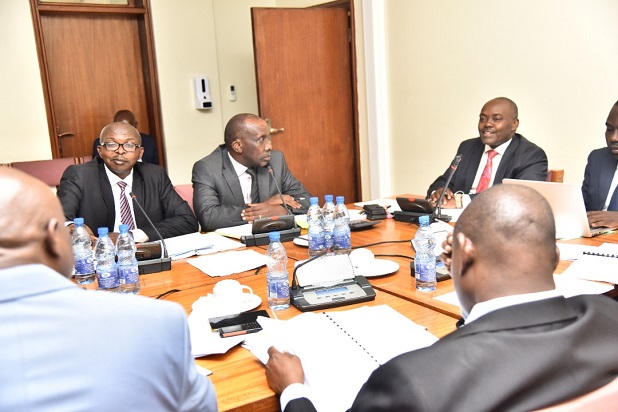The World Bank has called for the establishment of a motor vehicle accident fund to help Uganda increase domestic funding for health and also bridge the void being left by dwindling assistance from foreign donors.
Collins Chansa, a Senior Health Economist at the World Bank, told officials at the Ministry of Health that introducing this fund, coupled with an increase in taxes for cigarettes, fizzy drinks and beer, could help the country mobilise an additional 156 million dollars by the Financial Year 2029/2030.
Chansa, who was sharing details of a new World Bank report on the feasibility of increasing fiscal space for health in the country and resource pooling options for development assistance last evening, said that Uganda has a high annual road traffic fatality rate and crashes contribute up to 45 per cent of hospital admission and yet motor vehicle insurance coverage remains low at about 33 per cent, with a very chaotic insurance claims system.
He says that while a tax already exists, it needs an increase of twenty per cent for them to be able to generate additional revenue.
However, when responding to this recommendation, Richard Kabagambe, the Assistant Commissioner in charge of budget at the Ministry of Health, said the idea of further increasing taxes and introducing an Accident Fund, which may not be directly controlled by the Ministry of Health, is not viable.
“Should we increase taxes to fund health? I say no because the economy works as a whole, and if we tax the drunkards and they run away, the economy will struggle. I can also firmly say that when donors go, we are not finished”, he said.
However, Chansa says Uganda is currently among the top recipients of donor funding for health globally, standing in the 13th position. Figures by the World Health Organisation also speak to the same, showing that donor funding still contributes to 41.6 per cent of healthcare expenditure, followed by private or out-of-pocket expenditure at 36.2% and government only accounting for 22.3%.
With such low elasticity of domestic government spending on health, Chansa says Uganda needs a gradual increase in the health budget from 8 per cent to 15 per cent by the financial year 2029/30.
Dr Diana Atwine, the Permanent Secretary in the Ministry of Health, says the government is already looking into increasing domestic financing, but they are also actively involved in patching leakages by, among others, increasing accountability.
Grace Kiwanuka, the Executive Director of the Uganda Healthcare Federation, said conversations around health financing in Uganda have mainly been rhetoric and yet the common thread in all of them is the need to come up with a multi-sectoral solution, since clearly, the government doesn’t have enough money to fund health.
For her, even if, government offers free services in the public hospitals, these need to be costed if they are to identify inefficiencies.
-URN





